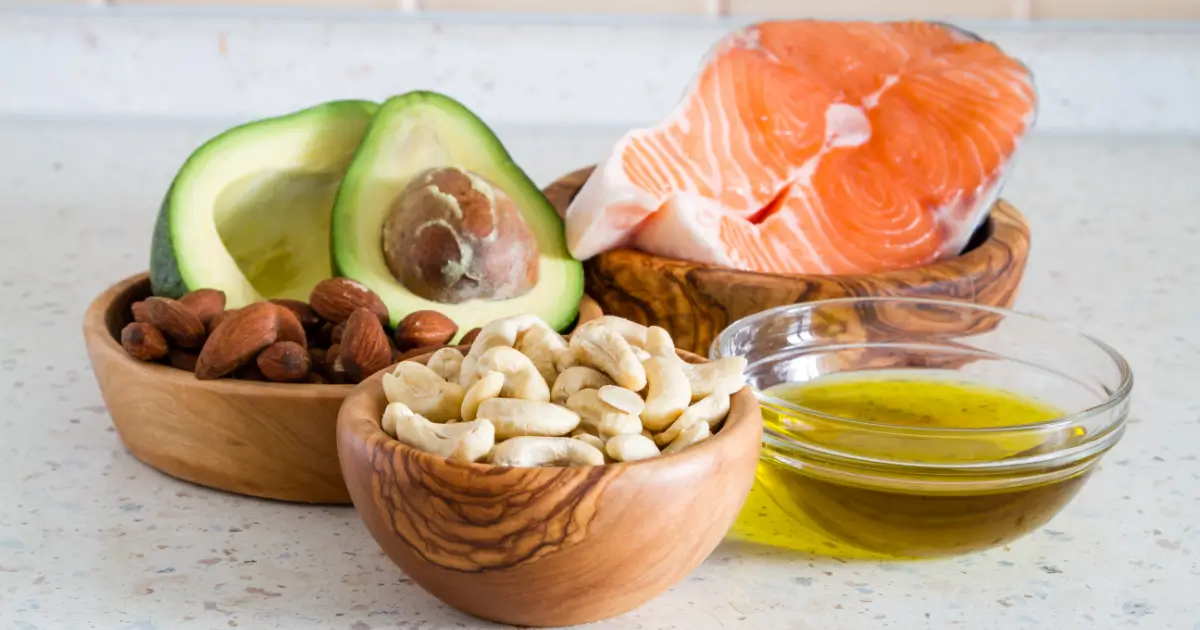The Surprising Truth: Why Fat is Good for You
admin2024-02-08T19:49:14+00:00
For decades, fat has been unfairly demonised as the enemy of a healthy diet. However, recent research has begun to shed light on the importance of dietary fat and its role in maintaining overall health. Contrary to popular belief, not all fats are created equal, and some fats are actually essential for our well-being.
Understanding the Types of Fats
Before delving into the benefits of fat, it’s important to distinguish between the various types of dietary fats:
- Saturated Fats: These fats are typically solid at room temperature and are found in animal products like meat and dairy, as well as some tropical oils. While excessive consumption of saturated fats can be detrimental to health, they also play essential roles in the body, such as supporting hormone production and brain function.
- Monounsaturated Fats : Found in olive oil, avocados and nuts, monounsaturated fats are heart-healthy fats that can help lower bad cholesterol levels and reduce the risk of heart disease.
- Polyunsaturated Fats : These fats are present in fatty fish (such as salmon and mackerel), walnuts, flaxseeds and some vegetable oils. They are rich in omega-3 and omega-6 fatty acids, which are essential for brain function, reducing inflammation and maintaining healthy skin.
- Trans Fats: Trans fats are artificial fats created through hydrogenation, a process used to solidify liquid vegetable oils. These fats are notorious for their adverse health effects and should be avoided whenever possible.
Now, let's delve into why fat is good for you:
1. Nutrient Absorption
Fat is essential for the absorption of fat-soluble vitamins (A, D, E, and K). Without an adequate intake of dietary fat, your body may struggle to absorb these vital nutrients. For example, vitamin D, which is essential for bone health and immune function, requires fat for proper absorption. So, including healthy fats in your diet ensures that you get the most out of these essential vitamins.
2. Brain Health
The brain is composed primarily of fat, and it relies on a steady supply of healthy fats to function optimally. Omega-3 fatty acids, found in fatty fish, walnuts and flaxseeds, are particularly important for cognitive function and can help reduce the risk of cognitive decline as we age. Including these foods in your diet may contribute to improved memory and overall brain health.
3. Heart Health
While it’s true that saturated and trans fats can be detrimental to heart health when consumed in excess, healthy fats like monounsaturated and polyunsaturated fats have the opposite effect. They can help lower bad cholesterol (LDL) levels, reduce inflammation and lower the risk of heart disease. In fact, diets rich in these fats are associated with a decreased risk of cardiovascular issues.
4. Satiety and Weight Management
Contrary to the misconception that fat makes you gain weight, it can actually help you feel full and satisfied after a meal. Including healthy fats in your diet can curb your appetite and reduce the likelihood of overeating. This can be especially helpful for those looking to manage their weight as it promotes a more controlled and balanced approach to eating.
5. Healthy Skin and Hair
Healthy fats are essential for maintaining supple skin and lustrous hair. They help to keep your skin moisturised and provide the building blocks necessary for the production of hair and skin cells. Including sources of healthy fats in your diet can contribute to a radiant complexion and strong, shiny hair.
Incorporating Healthy Fats into Your Diet
Now that we’ve established why fat is good for you, let’s explore how to incorporate healthy fats into your daily meals:
- Cook with olive oil or avocado oil instead of saturated fats like butter or lard.
- Snack on nuts and seeds, such as almonds, walnuts, and pumpkin seeds.
- Add fatty fish like salmon, mackerel or sardines to your diet a few times a week.
- Include avocados in salads, sandwiches, smoothies or as a topping for your morning toast.
- Use natural nut butters (with no added sugars or trans fats) as spreads or in smoothies.
It’s time to dispel the myth that all fats are bad for you. Healthy fats are not only beneficial but essential for various bodily functions, including nutrient absorption, brain and heart health. By making conscious choices and incorporating sources of healthy fats into your diet, you can improve your overall well-being and enjoy the many benefits of fat. So, embrace the goodness of fat and make it a part of your balanced, healthy diet.


Leave a Reply
You must be logged in to post a comment.